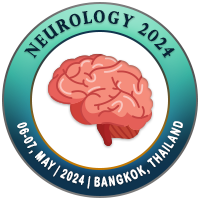
Sepideh Tamrchi
Beheshti University, Tehran of IranTitle: Predicting Relationship Obsessive-Compulsive Disorder (ROCD) symptoms and severity based on thought-action fusion, attachment styles, and personality traits
Abstract
Relationship obsessive-compulsive disorder (ROCD) is a theme of obsessive-compulsive disorder (OCD) focusing on the relationship (i.e., relationship-centered) or the relationship partner (i.e., partner-focused). These obsessions often cause considerable distress, and the person tries to alleviate them through compulsive behaviors (e.g., compulsive checking and reassurance seeking). This study aimed to investigate the role of attachment styles, Thought-Action Fusion (TAF), and personality traits in predicting the symptoms and severity of different presentations of ROCD, including relationship-centered and partner-focused. A total of 612 participants completed Partner-Related Obsessive-Compulsive Symptoms Inventory (PROCSI), Relationship Obsessive-Compulsive Inventory (ROCI), Experience in Close-Relationships Scale-Revised (ECR-R), NEO Five-Factor Inventory (NEO-FFI), TAF Scale, and Yale-Brown-Obsessive-Compulsive Scale (Y-BOCS). Data were analyzed using Pearson-correlation and multiple regression analysis. One-hundred and eighty-six people (30.4%) and 278 people (45.4%) had clinical levels of ROCI and PROCSI, respectively and 149 individuals (24.3%) had clinical levels in both questionnaires. ROCD symptoms positively correlated with attachment insecurities, three TAF subscales, and OCD severity. Moreover, neuroticism positively correlated with ROCI and PROCSI, and extraversion, agreeableness, and conscientiousness negatively correlated with them. Based on stepwise regression analysis the attachment anxiety, OCD-severity, and attachment avoidance were the significant predictors of ROCI. This prediction for PROCSI scores was observed, by OCD-severity, extraversion, attachment avoidance, neuroticism, and attachment anxiety. Therefore, Attachment styles, personality traits, and TAF are involved in the etiology of ROCD and can be used to design interventions and early identification of high-risk individuals.
Biography
Sepideh Tamrchi has a master's degree in clinical psychology and is currently a PhD student in health psychology at Shahid Beheshti University, one of the best universities in Iran, and works in the field of child and adolescent psychology. She has 3 international publications and has been serving as an editorial board member of several Iranian journals.

